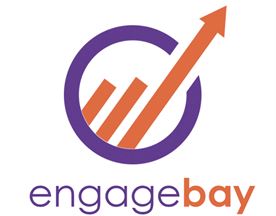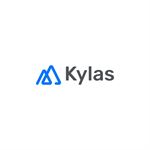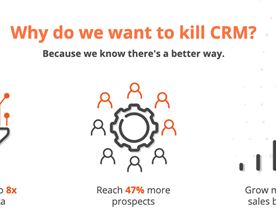Are you a contractor or construction business looking to simplify your business processes? A Customer Relationship Management system (CRM) can streamline customer data management, help you win new clients, and manage projects more efficiently.
But with so many available construction CRM software options on the market, it can be difficult to know which is best for you. Fortunately, we’re here to help!
In this post, we’ll showcase the top 4 CRMs perfectly suited to contractors and highlight their features so you can decide on the best one for your business. Read on to learn more!
What is a CRM for Contractors?
CRM (Customer Relationship Management) for contractors and construction businesses refers to the tools and processes used to manage interactions with customers, clients, and potential clients in the construction and contracting industry.
This can include organizing and tracking leads, managing customer communications and information, sales management, scheduling appointments and follow-ups, and analyzing customer behavior to improve future interactions and sales.
The goal of CRM software for contractors is to streamline and improve the customer experience, build strong relationships with clients, and ultimately drive business growth.
Importance of CRM software for contractors
The Journal of Building Engineering found that without the right tools to assist in contract management and the sales process, a construction company can have trouble accurately predicting its profit margin.
A CRM is important for contractors because it helps you to:
Manage customer relationships
CRM software provides a centralized database for managing customer information and interactions, enabling construction professionals to build stronger, more personalized relationships with clients.
Increase efficiency and productivity
With a CRM system, contractors can automate repetitive tasks, such as follow-up calls and emails, freeing up time to focus on more important tasks.
Improve customer satisfaction
CRM provides contractors in the construction business with valuable insights into customer behavior and preferences, enabling them to tailor their approach and provide a better customer experience.
Streamline sales management and marketing
Construction CRM software helps contractors to streamline their sales process and marketing efforts by tracking leads and opportunities, automating marketing campaigns, and analyzing the results to improve future efforts.
Enhance decision-making
With access to real-time data and insights, contractors can make informed decisions about their business, such as which projects to pursue, how to allocate resources, and how to improve their processes.
Increase efficiency and productivity
With a CRM system, contractors can automate repetitive tasks, such as follow-up calls and emails, freeing up time to focus on more important tasks.
As the contractor industry continues to evolve and customer service expectations rise, having a good construction CRM system in place is critical for staying competitive. Plus, average with profit margins on common projects at only 2.1-8.7%, it’s critical for construction firms to embrace technology and save time and money through streamlining operations.

Key Features of Construction CRM for Contractors
In this section, we will explore the key features of construction CRM software for contractors and highlight why each one is important.
From contact management and job management to invoicing and payments, and reporting and analytics, the best construction CRM software tools provide a comprehensive suite of tools to help contractors succeed.
Whether you’re a small contractor or a large construction company, a robust construction CRM system can be a valuable asset to your business.
Contract and Project Management Tools
These features allows contractors to manage the different aspects of a job, from job scheduling and resource allocation to job tracking and completion.
Invoicing and Payments
This feature enables contractors to create and manage invoices, process payments, and track payment status.
Contact Management
This feature helps contractors store, organize, and manage information about their customers and leads in a centralized database.
Scheduling and Reminders
This feature enables contractors to schedule appointments, meetings, and reminders, and helps them stay on top of important tasks and deadlines.
Reporting and Analytics
This feature provides contractors with valuable insights and data about their business, such as sales trends, customer behavior, and marketing results. It helps contractors make informed decisions and continuously improve their processes.
Mobile Accessibility
This feature allows contractors to access CRM data and features from their mobile devices. It’s important because it enables contractors to manage their business from anywhere, at any time, improving productivity and responsiveness to customers.
Integrations with other tools
Integrating with other third-party tools gives construction businesses the flexibility they need to optimize their workflows for their particular way of selling.
Top CRM Solutions for Contractors
In today’s competitive construction and contracting industry, having the right tools to manage customer relationships and streamline operations is essential.
In this section, we will explore some of the top CRM solutions for contractors, highlighting their key features and benefits.
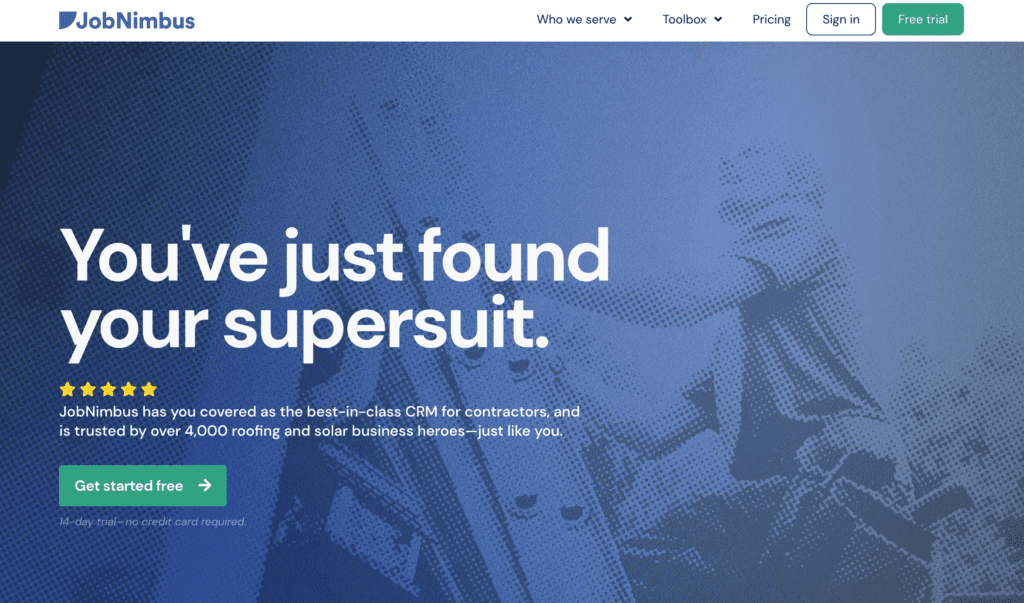
JobNimbus
JobNimbus is a popular CRM and construction management software option for contractors. Here are some of the pros and cons of JobNimbus:
Pros:
- User-friendly interface – JobNimbus has a simple and intuitive interface that makes it easy to use for contractors of all skill levels.
- Customizable workflow – JobNimbus allows contractors to create custom workflows that reflect their specific business processes.
- Mobile app – JobNimbus has a mobile app that allows contractors to access their CRM data and contract management tools from anywhere.
- Integrations – JobNimbus integrates with a wide range of tools and services, including email, invoicing, and payment processing.
- Affordable pricing – JobNimbus offers an affordable pricing structure that is accessible to contractors of all sizes.
Cons:
- Limited reporting – JobNimbus has limited reporting capabilities compared to other CRM solutions.
- Lacks advanced features – While JobNimbus is a good CRM and project management solution for small contractors, it may not have all the advanced features that larger contractors need.
- Poor customer support – Some users have reported poor customer support, with long wait times for responses and limited technical support.
- Buggy software – Some users have reported bugs and technical issues with the JobNimbus software, which can slow down work processes and cause frustration.
It’s important to keep in mind that the pros and cons of JobNimbus may vary depending on the size and complexity of your business, as well as your specific needs and preferences.
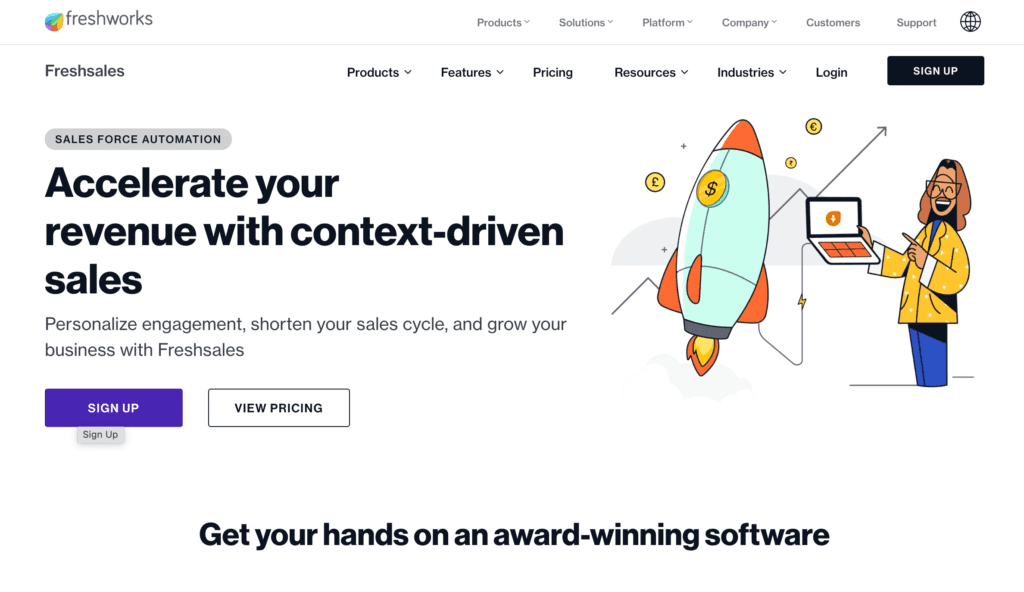
Freshworks CRM
Freshworks CRM is a cloud-based customer relationship management solution for businesses of all sizes. Here are some of the pros and cons of Freshworks CRM:
Pros:
- Comprehensive suite of tools – Freshworks CRM provides a wide range of tools for managing customer interactions, including lead management, ticket management, and live chat.
- User-friendly interface – Freshworks CRM has a simple and intuitive interface that makes it easy for businesses to get started using the platform.
- Integrations – Freshworks CRM integrates with a wide range of tools and services, including email, social media, and marketing automation.
- Affordable pricing – Freshworks CRM offers a range of pricing plans that are accessible to businesses of all sizes, with flexible pricing options to fit a variety of budgets.
- Great customer support – Freshworks CRM has a reputation for excellent customer support, with fast response times and helpful, knowledgeable staff.
Cons:
- Complex reporting – Freshworks CRM has a complex reporting system that can be difficult for some users to navigate.
- Limited customization – Freshworks CRM has limited customization options, which may not be suitable for businesses with specific needs or requirements.
- Steep learning curve – Freshworks CRM has a steep learning curve for businesses that are new to CRM, which can make it difficult for them to get started using the platform.
- Slow performance – Some users have reported slow performance and long wait times when using Freshworks CRM, which can impact productivity and user satisfaction.
As with any CRM solution, the pros and cons of Freshworks CRM will depend on the specific needs and requirements of your business.
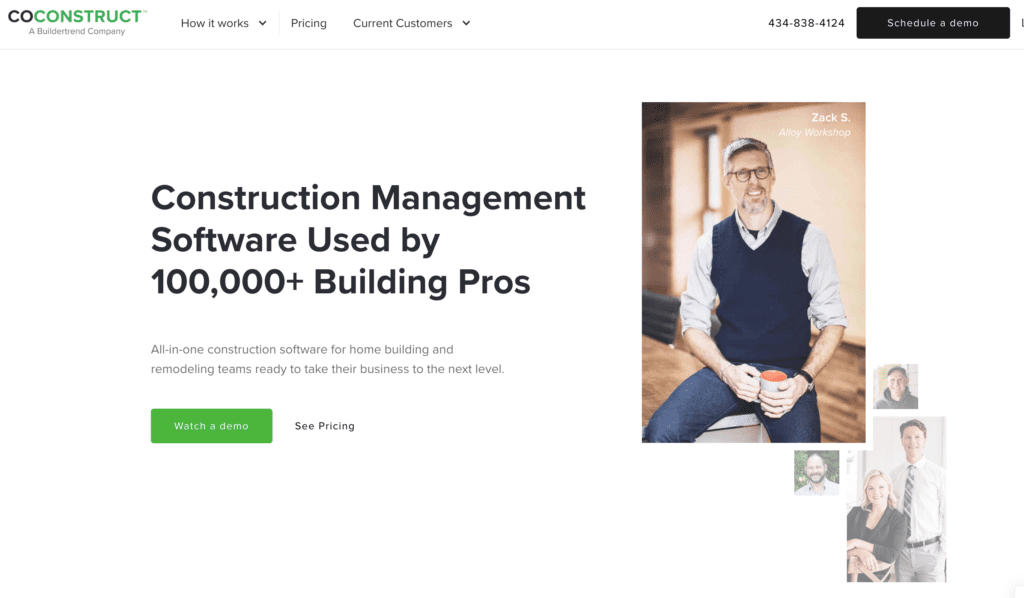
CoConstruct
CoConstruct is cloud-based construction CRM software designed specifically for custom home builders and remodelers. Here are some of the pros and cons of CoConstruct:
Pros:
- Specialized for the construction industry – CoConstruct is specifically designed for a construction business, with features and tools tailored to the needs of custom home builders and remodelers.
- Collaborative platform – CoConstruct allows for collaboration between multiple stakeholders, including contractors, clients, and subcontractors.
- User-friendly interface – CoConstruct has a simple and intuitive interface that makes it easy for contractors to use and manage their projects.
- Automated workflows – CoConstruct includes automated workflows that help streamline and manage construction projects from start to finish.
- Mobile app – CoConstruct has a mobile app that allows contractors to access project information and tools from anywhere, on any device.
Cons:
- Limited integrations – CoConstruct has limited integrations with other tools and services, which may limit its functionality for some contractors.
- Steep learning curve – CoConstruct has a steep learning curve for businesses that are new to construction project management software, which can make it difficult for them to get started using the platform.
- Limited reporting – CoConstruct has limited reporting capabilities compared to other construction project management platforms.
- Poor customer support – Some users have reported poor customer support, with long wait times for responses and limited technical support.
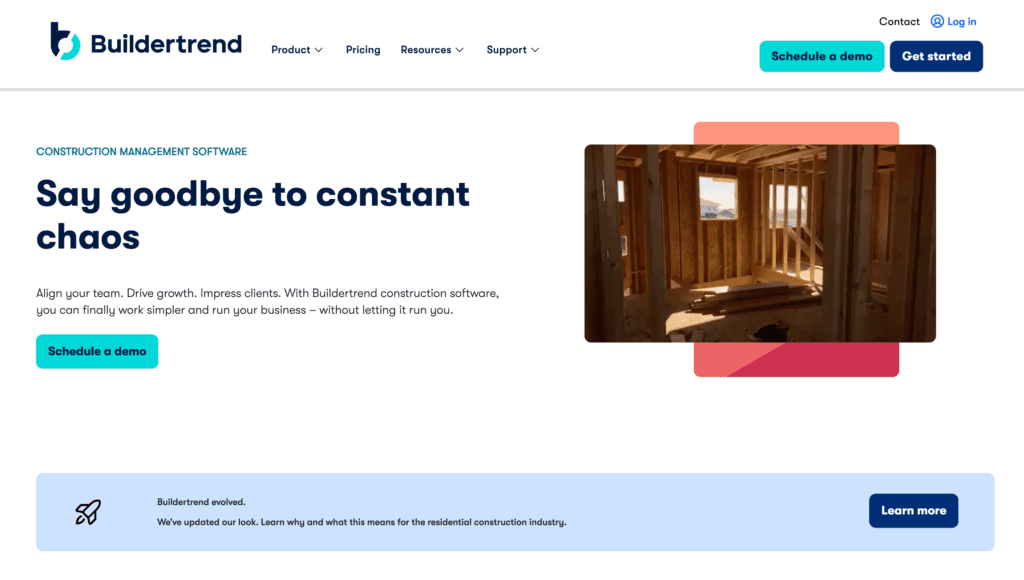
Buildertrend
Buildertrend is a cloud-based construction project management platform designed for residential and commercial builders, remodelers, and general contractors. Here are some of the pros and cons of Buildertrend:
Pros:
- Comprehensive suite of tools – Buildertrend provides a wide range of tools for managing construction projects, including scheduling, budget tracking, and communication tools.
- User-friendly interface – Buildertrend has a simple and intuitive interface that makes it easy for contractors to use and manage their projects.
- Collaborative platform – Buildertrend allows for collaboration between multiple stakeholders, including contractors, clients, and subcontractors.
- Automated workflows – Buildertrend includes automated workflows that help streamline and manage projects from start to finish.
- Mobile app – Buildertrend has a mobile app that allows contractors to access project information and tools from anywhere, on any device.
Cons:
- Steep learning curve – Buildertrend has a steep learning curve for businesses that are new to construction project management software, which can make it difficult for them to get started using the platform.
- Poor customer support – Some users have reported poor customer support, with long wait times for responses and limited technical support.
- Limited integrations – Buildertrend has limited integrations with other tools and services, which may limit its functionality for some contractors.
- Poor reporting capabilities – Some users have reported poor reporting capabilities compared to other construction project management platforms.
How to Choose the Best CRM for Contractors
Here are the factors to consider when choosing the your construction CRM software:
Specialization:
When choosing a CRM platform, it’s important to look for one that is specifically designed for the construction industry.This will ensure that the platform includes features and tools that are tailored to the needs of contractors, such as job management, invoicing and payments, contact management, scheduling and reminders, and reporting and analytics.
User-friendly interface:
A user-friendly interface is essential for contractors who need to manage multiple projects and stakeholders.Look for a CRM platform with a simple and intuitive interface that makes it easy for contractors to use and manage their projects.
Collaboration:
Projects often involve multiple stakeholders, including contractors, clients, and subcontractors.Consider a CRM platform that allows for collaboration between these stakeholders and makes it easy for everyone to access project information and communicate with each other.
Automated workflows:
Automated workflows can help streamline and manage projects from start to finish.Look for a CRM platform that includes automated workflows to help contractors save time and manage their projects more efficiently.
Mobile app:
Many contractors need to access project information and tools while on the go.Look for a CRM platform with a mobile app that allows contractors to access project information and tools from anywhere, on any device.
Integrations:
Contractors often use a variety of tools and services to manage their projects, such as project management software, accounting software, and communication tools.Consider a CRM platform with a wide range of integrations with other tools and services to maximize its functionality and efficiency.
Reporting and analytics:
Reporting and analytics are essential for measuring project performance and progress.Look for a CRM platform with robust reporting and analytics capabilities that provide insights into project performance and progress.
Customer support:
In the event of any technical issues or questions, strong customer support is crucial.Look for a CRM platform with strong customer support, including fast response times and access to technical support.
Price:
The cost of the CRM platform should be considered and compared to other options available on the market.Make sure the platform fits within your budget and provides good value for money.
By carefully considering each of these factors, contractors can find the CRM platform that best meets their needs and helps them manage their projects more efficiently and effectively.

Frequently Asked Questions
What is a CRM for contractors?
A CRM (Customer Relationship Management) for contractors is a tool and process used to manage interactions with customers, clients, and potential clients in the construction and contracting industry.
It helps to organize and track leads, manage customer information and communications, schedule appointments and follow-ups, and analyze customer behavior to improve future interactions and sales.
Why is a CRM important for contractors?
A CRM is important for contractors because it helps to manage customer relationships, increase efficiency and productivity, improve customer satisfaction, streamline sales and marketing, and enhance decision-making.
What are the key features of a CRM for contractors?
The key features of a CRM for contractors include job management, invoicing and payments, contact management, project management, scheduling and reminders, reporting and analytics, mobile accessibility, and integrations with other tools.
What are some of the top CRM solutions for contractors?
Some of the top CRM solutions for contractors include JobNimbus, Procore, CoConstruct, PlanGrid, and BuilderTrend.
How can a CRM help contractors streamline their business processes?
A CRM helps contractors streamline their business processes by automating repetitive tasks, tracking leads and opportunities, and providing valuable insights into customer behavior and preferences.
This enables contractors to focus on more important tasks and make informed decisions about their business.
Can a CRM be accessed from a mobile device?
Yes, many CRMs for contractors offer mobile accessibility, allowing contractors to manage their business from anywhere, at any time.
What are the benefits of using a CRM for contractors?
The benefits of using a CRM for contractors include improved customer relationships, increased efficiency and productivity, enhanced decision-making, and streamlined sales and marketing efforts.
Conclusion
Choosing the best construction CRM software is a critical decision that can have a major impact on the success of your projects.
By carefully considering factors such as specialization, user-friendliness, collaboration capabilities, automated workflows, mobile app access, integrations with other tools and services, reporting and analytics features, customer support options and price points you should be able to find the right platform for your needs.
With the right CRM in place you will be well positioned to manage your projects more efficiently and effectively than ever before.





